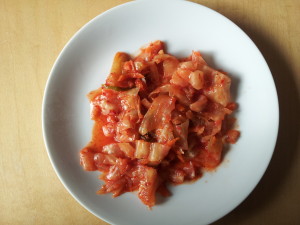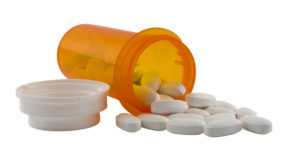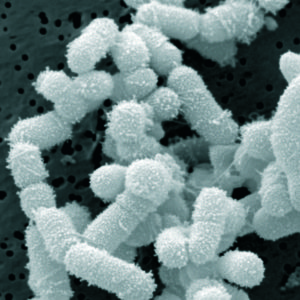 When we eat food, we eat all the microbes that live on and in the food. But how many microbes do we eat daily? An interesting study was published a few years ago that tried to answer this question. The researchers found that the average American adult ingests between 1 million to over 1 billion microbes every day!
When we eat food, we eat all the microbes that live on and in the food. But how many microbes do we eat daily? An interesting study was published a few years ago that tried to answer this question. The researchers found that the average American adult ingests between 1 million to over 1 billion microbes every day!
The University of California researchers conducted the study in 2014 by analyzing meals representing three typical dietary patterns: 1) the average American diet (lots of convenience foods) (2) the USDA recommended diet (emphasis on fruits and vegetables, lean meat, dairy, and whole grains), and 3) vegan diet (excludes all animal and dairy products).
They found that Americans likely consume between one million to about 1.3 billion live microbes daily from foods and beverages. The highest numbers (3-fold higher) were in the USDA recommended meal plan, because it involved 2 meals with fermented foods (that had not been heat-treated or pasteurized, which kill many bacteria). Fresh produce also has high numbers of bacteria (e.g., an apple has 100 million bacteria!).
 Fermented foods (e.g. kimchi, sauerkraut, yogurt, kefir, traditional pickles, kombucha, natto, tempeh, miso) are loaded with microbial species. Recent research shows that eating a serving or 2 of fermented foods daily is a quick way to improve health (by lowering inflammation) and increasing the diversity of bacterial species in the gut microbiome.
Fermented foods (e.g. kimchi, sauerkraut, yogurt, kefir, traditional pickles, kombucha, natto, tempeh, miso) are loaded with microbial species. Recent research shows that eating a serving or 2 of fermented foods daily is a quick way to improve health (by lowering inflammation) and increasing the diversity of bacterial species in the gut microbiome.
Ingesting higher numbers of microbes from foods is desirable - because having more species in the gut is considered a sign of health. Some of the microbes we ingest join our existing gut microbes, but others just pass through our gut and leave (the "transient microbiome"). Research finds that microbes can have beneficial effects even as they pass through.
Excerpts from the Lang, Eisen, Zivkovic study (2014) study, from Peer Journal: The microbes we eat: abundance and taxonomy of microbes consumed in a day's worth of meals for three diet types.
...Little is known about the effects of ingested microbial communities that are present in typical American diets, and even the basic questions of which microbes, how many of them, and how much they vary from diet to diet and meal to meal, have not been answered. ...continue reading "We Eat Millions Of Microbes Each Day"

 Antibiotics can be life-saving, but there are also unintended consequences. One of them is that they disrupt and alter the gut microbiome (the microbial community of the millions of microbes living in the intestines). A
Antibiotics can be life-saving, but there are also unintended consequences. One of them is that they disrupt and alter the gut microbiome (the microbial community of the millions of microbes living in the intestines). A  It is now more than 69 weeks since I first successfully started using kimchi to treat the chronic sinusitis that had plagued me (and my family) for so many years. I originally reported on the Sinusitis Treatment on Dec. 6, 2013 (the method is described there) and followed up on Feb. 21, 2014.
It is now more than 69 weeks since I first successfully started using kimchi to treat the chronic sinusitis that had plagued me (and my family) for so many years. I originally reported on the Sinusitis Treatment on Dec. 6, 2013 (the method is described there) and followed up on Feb. 21, 2014.